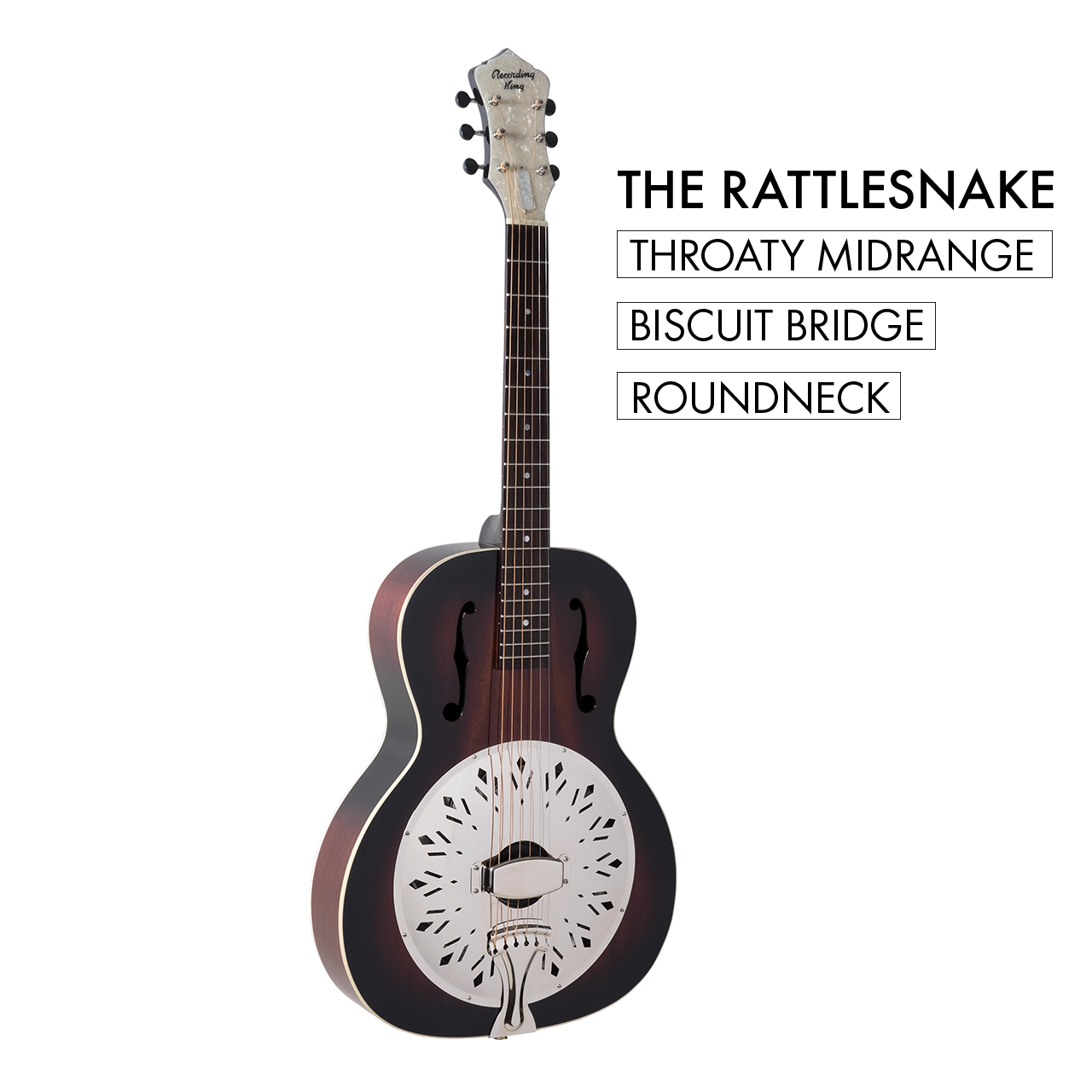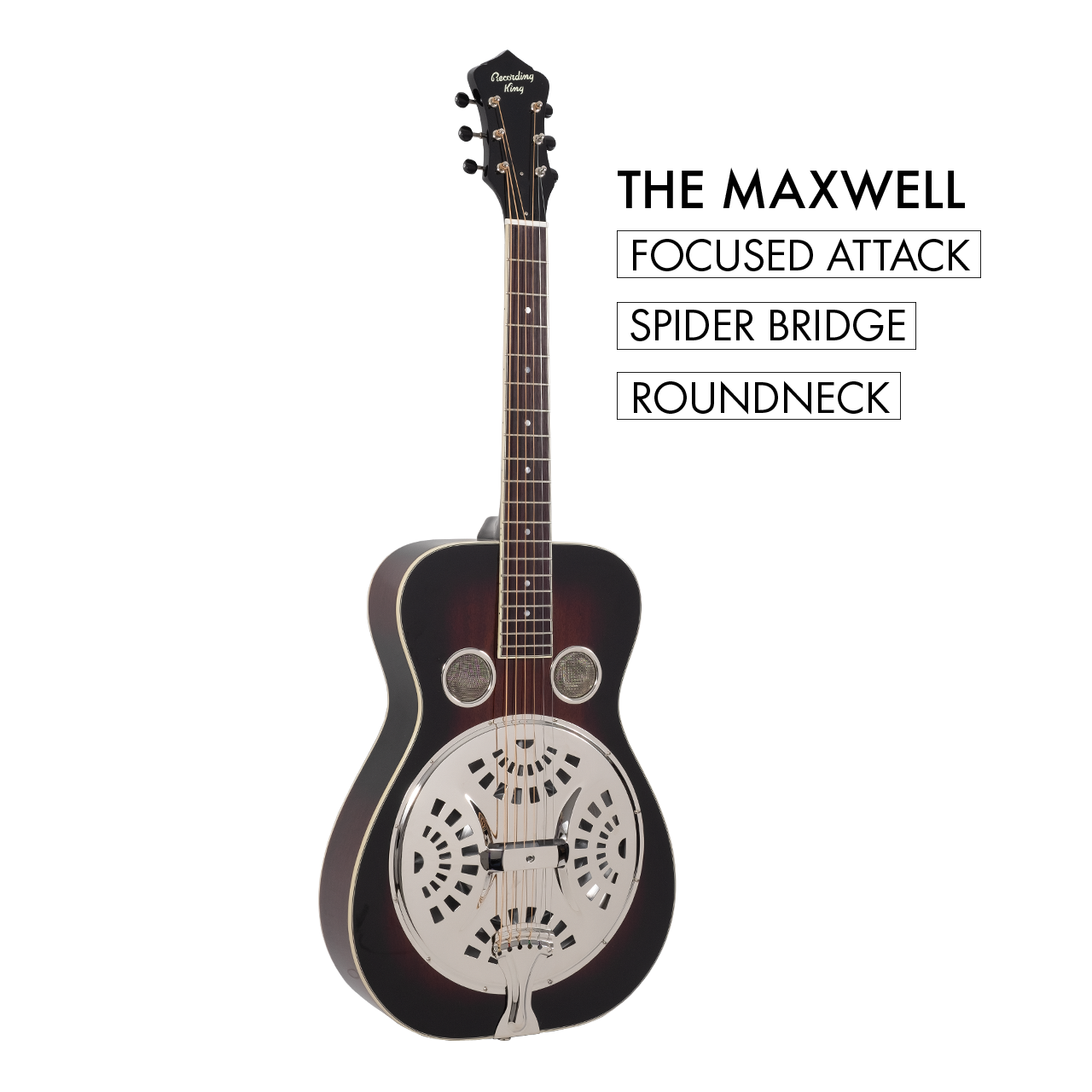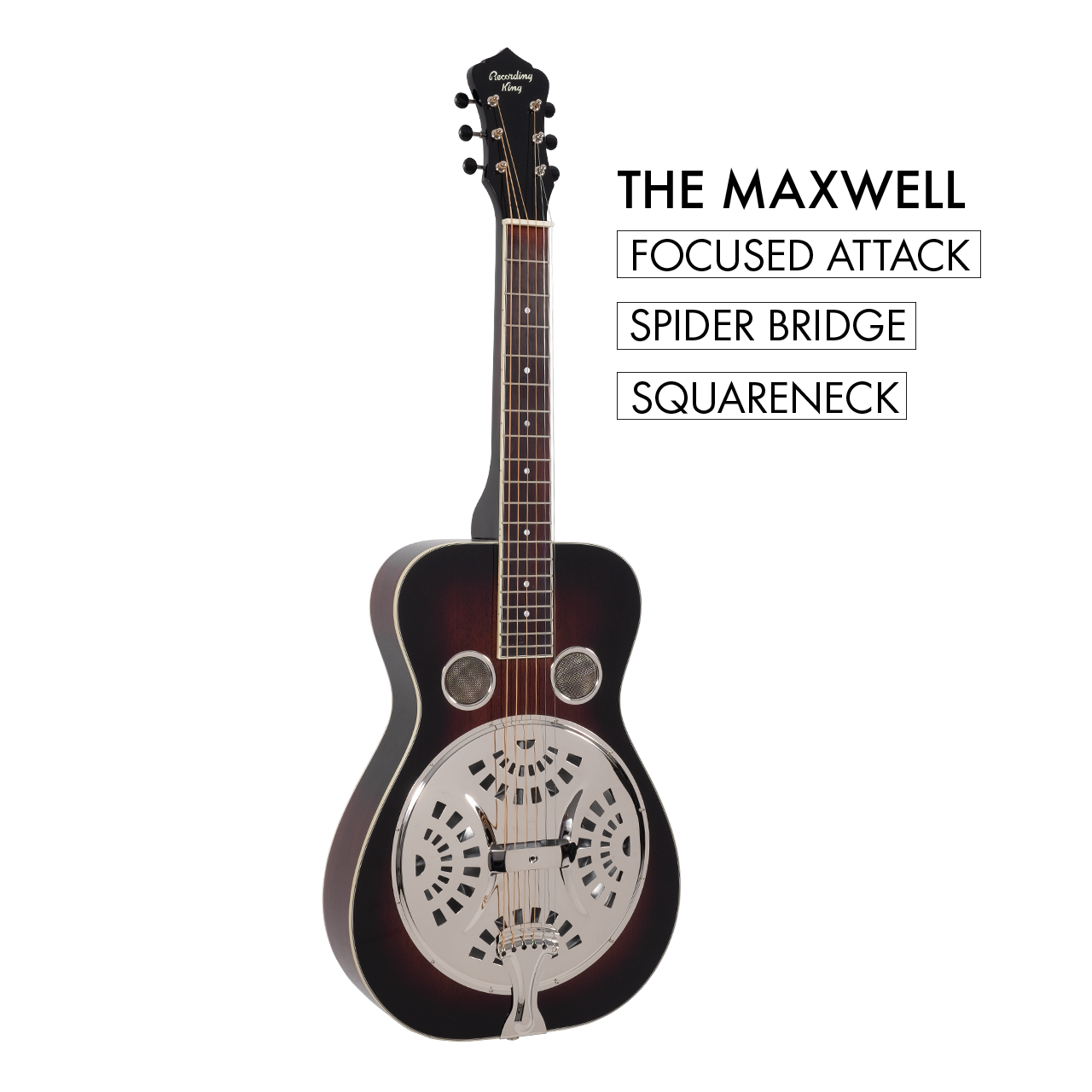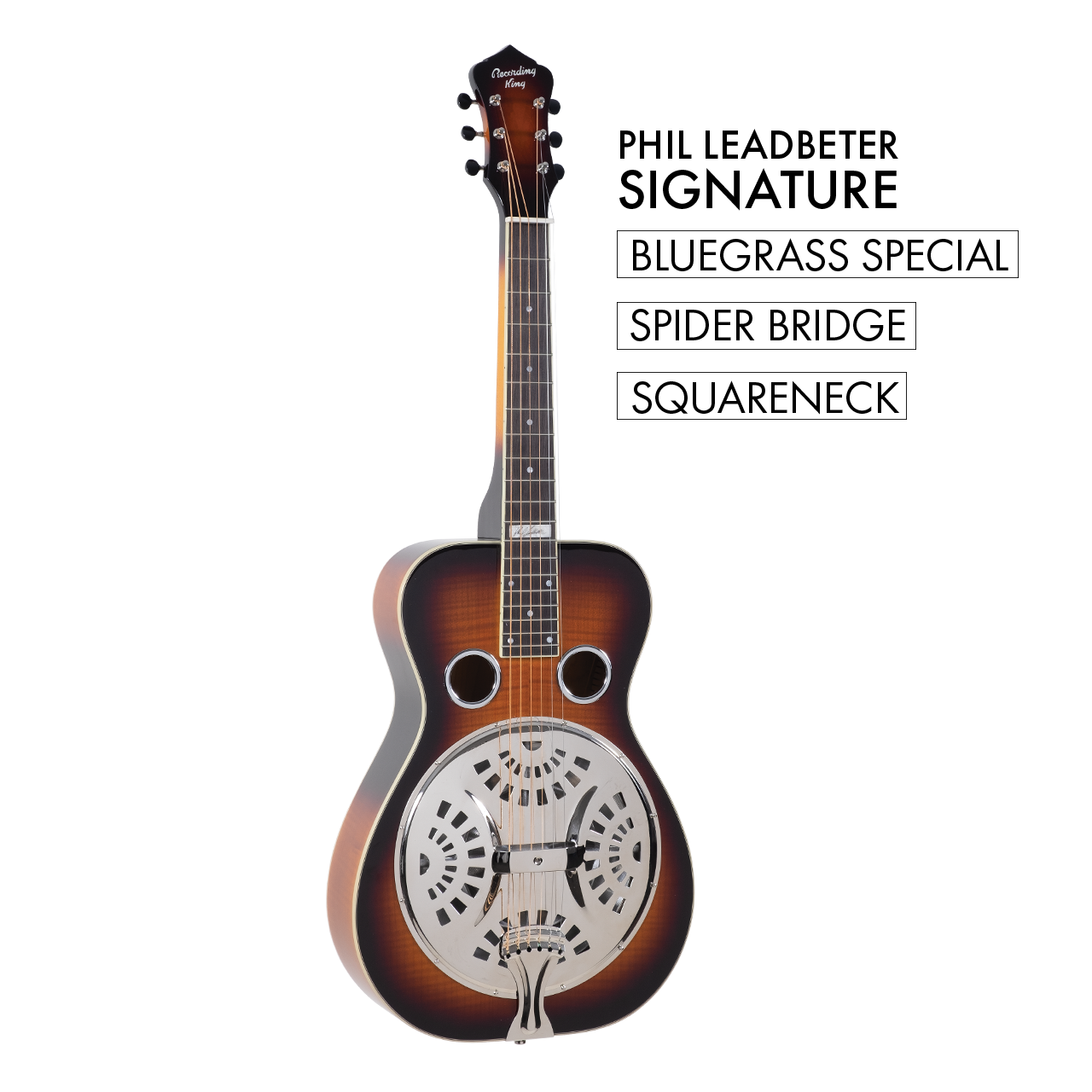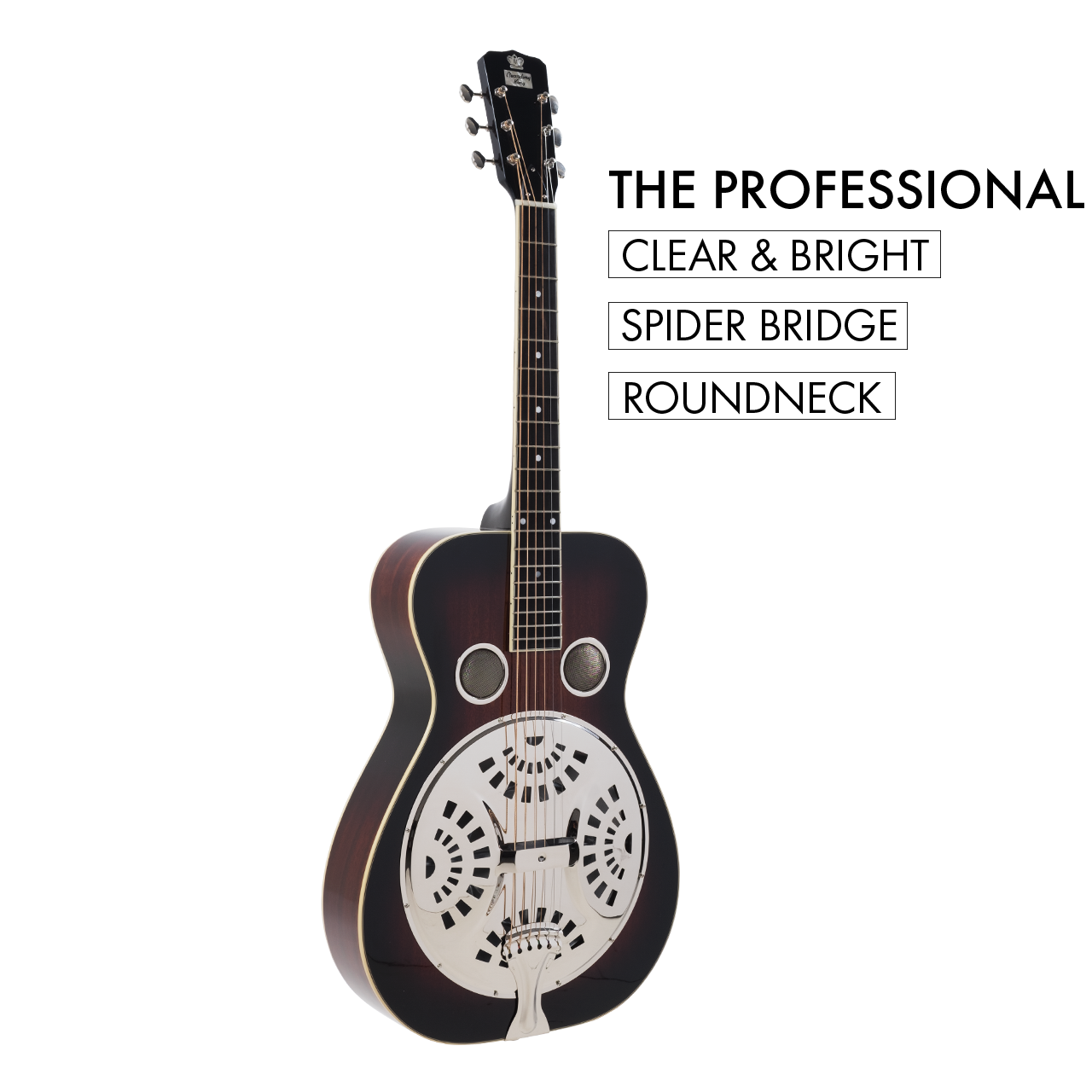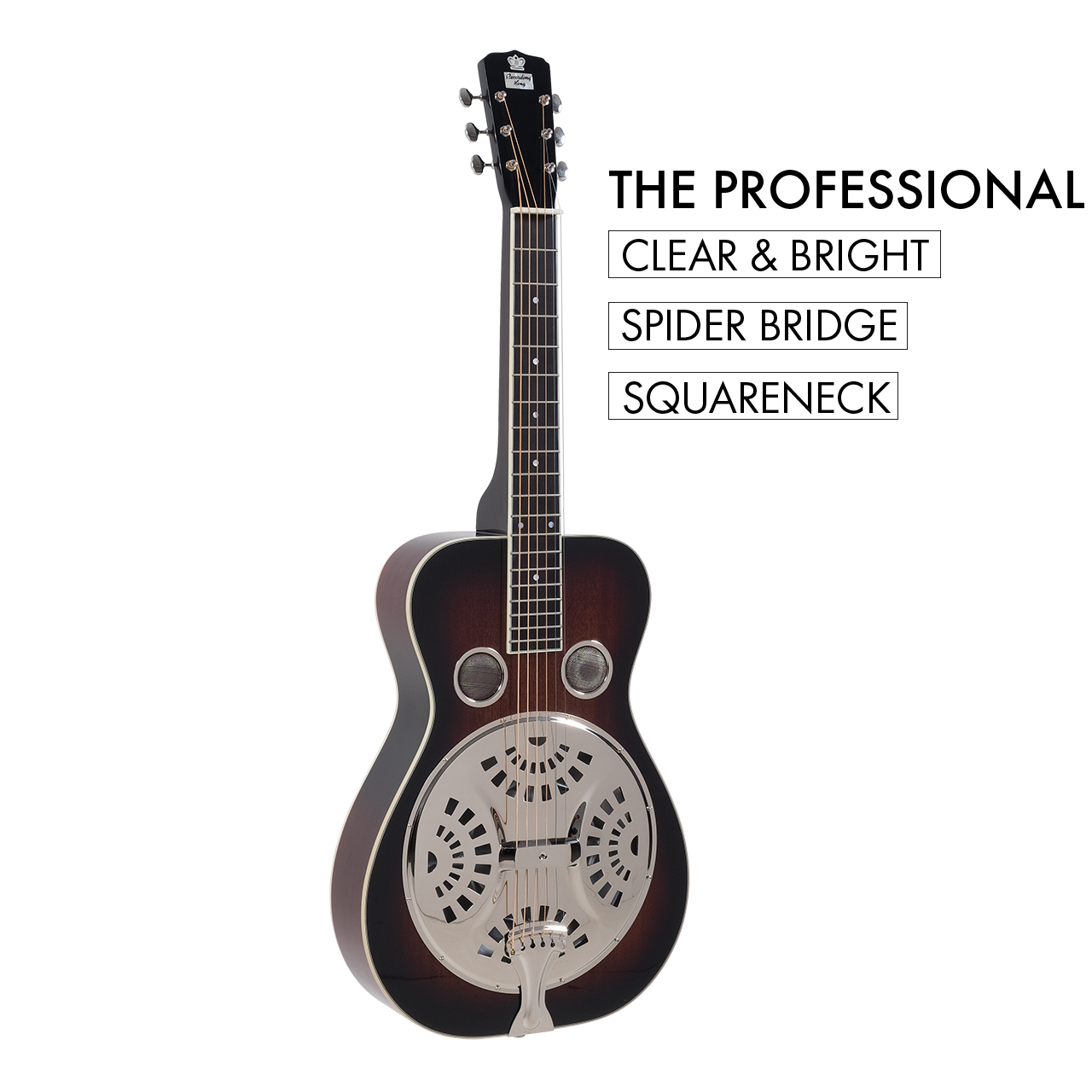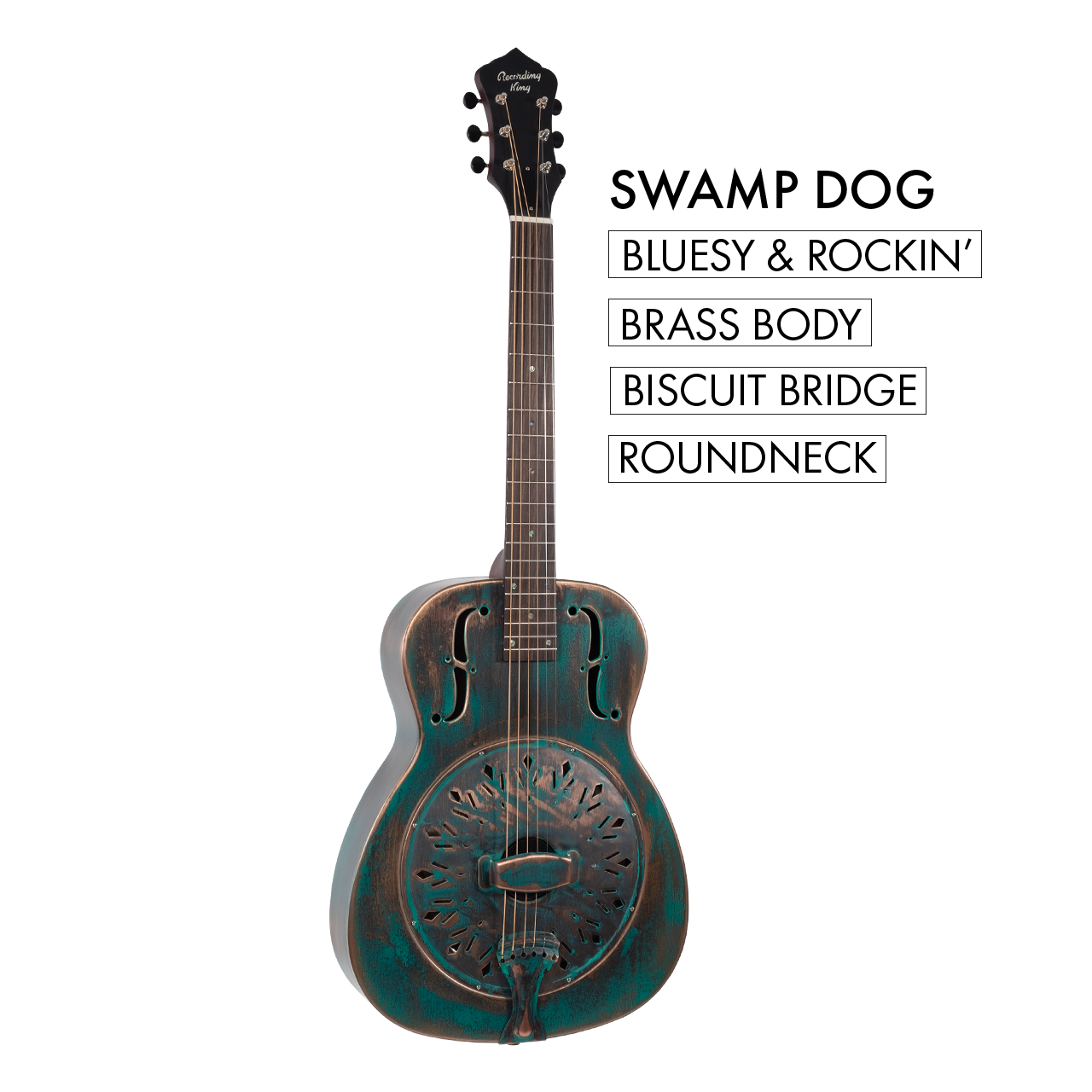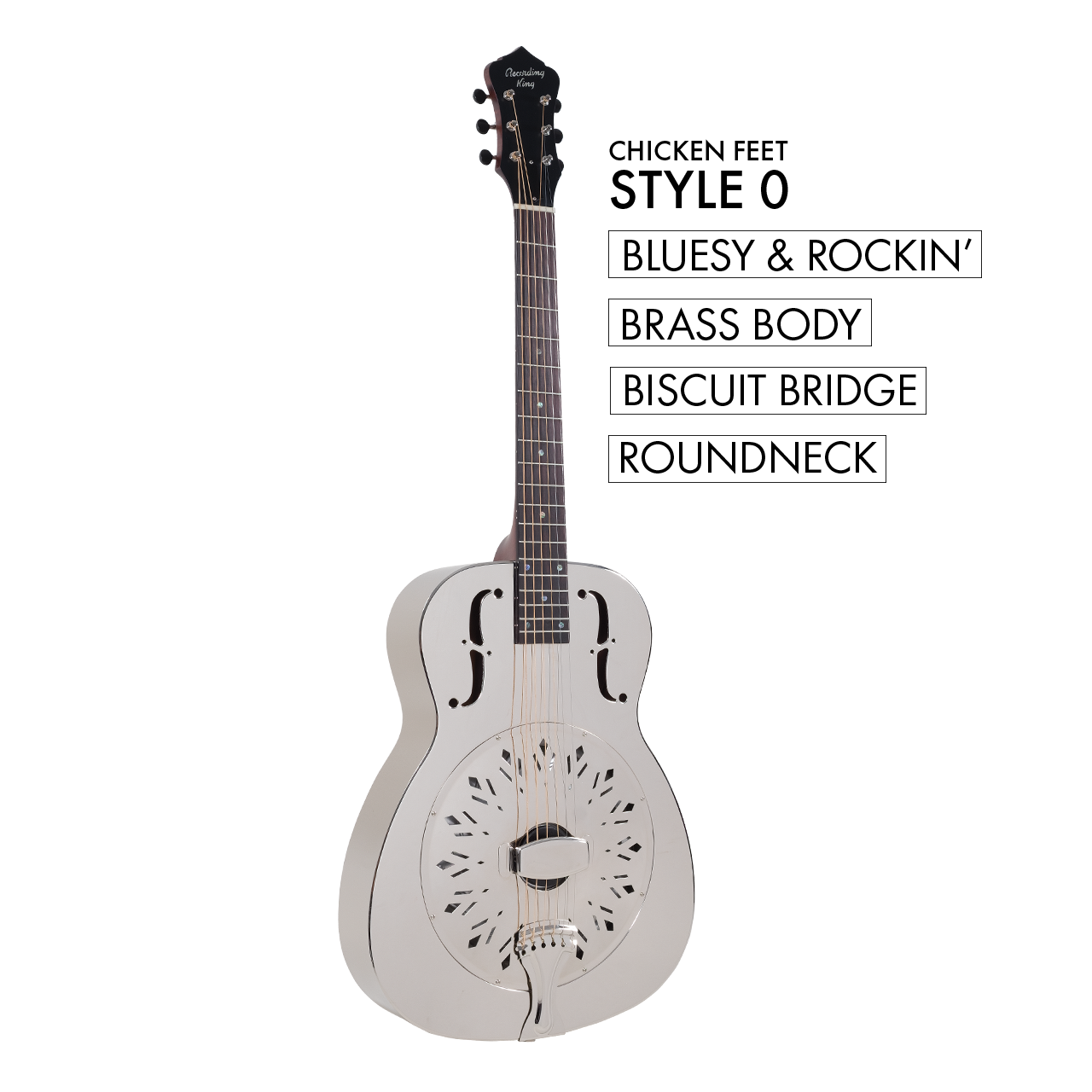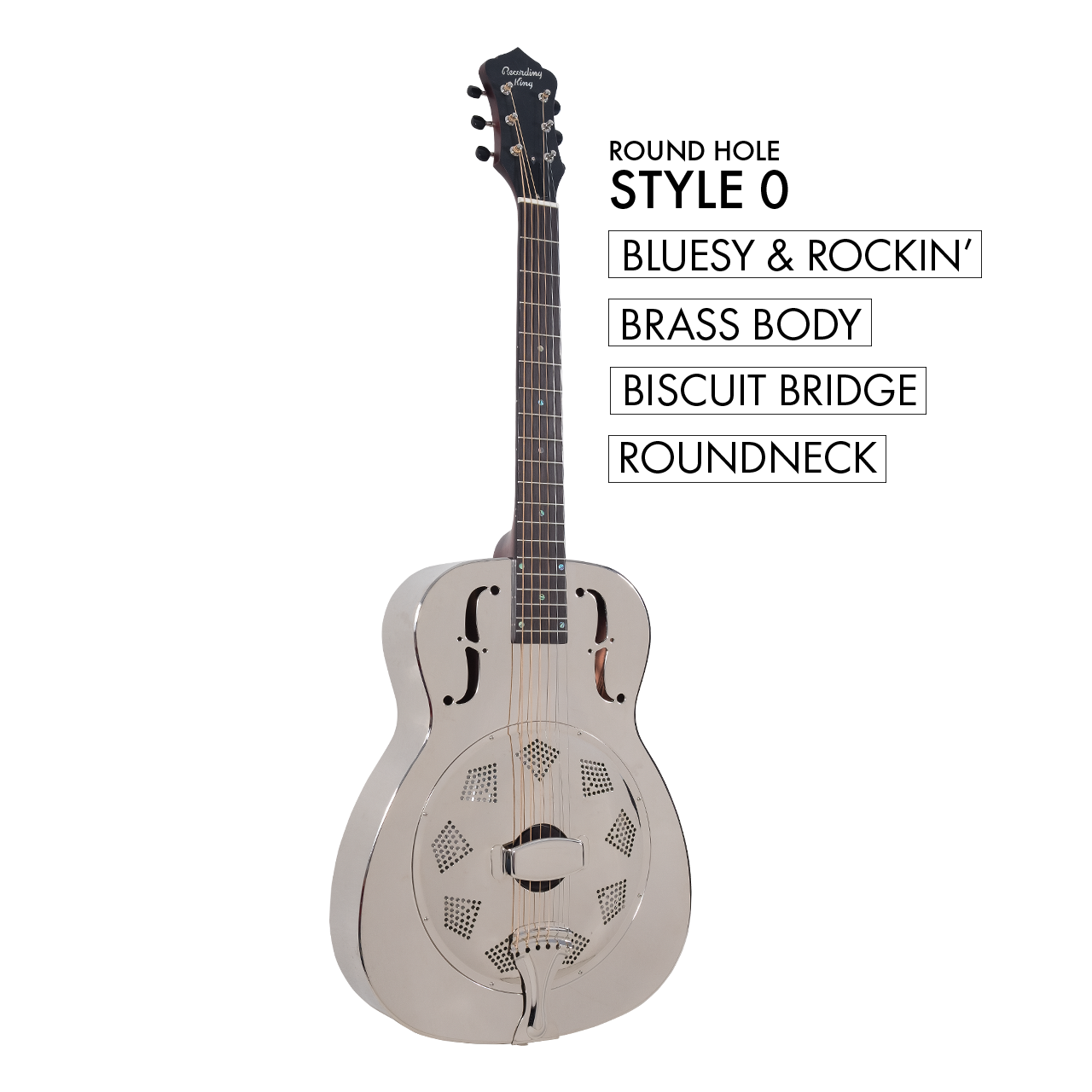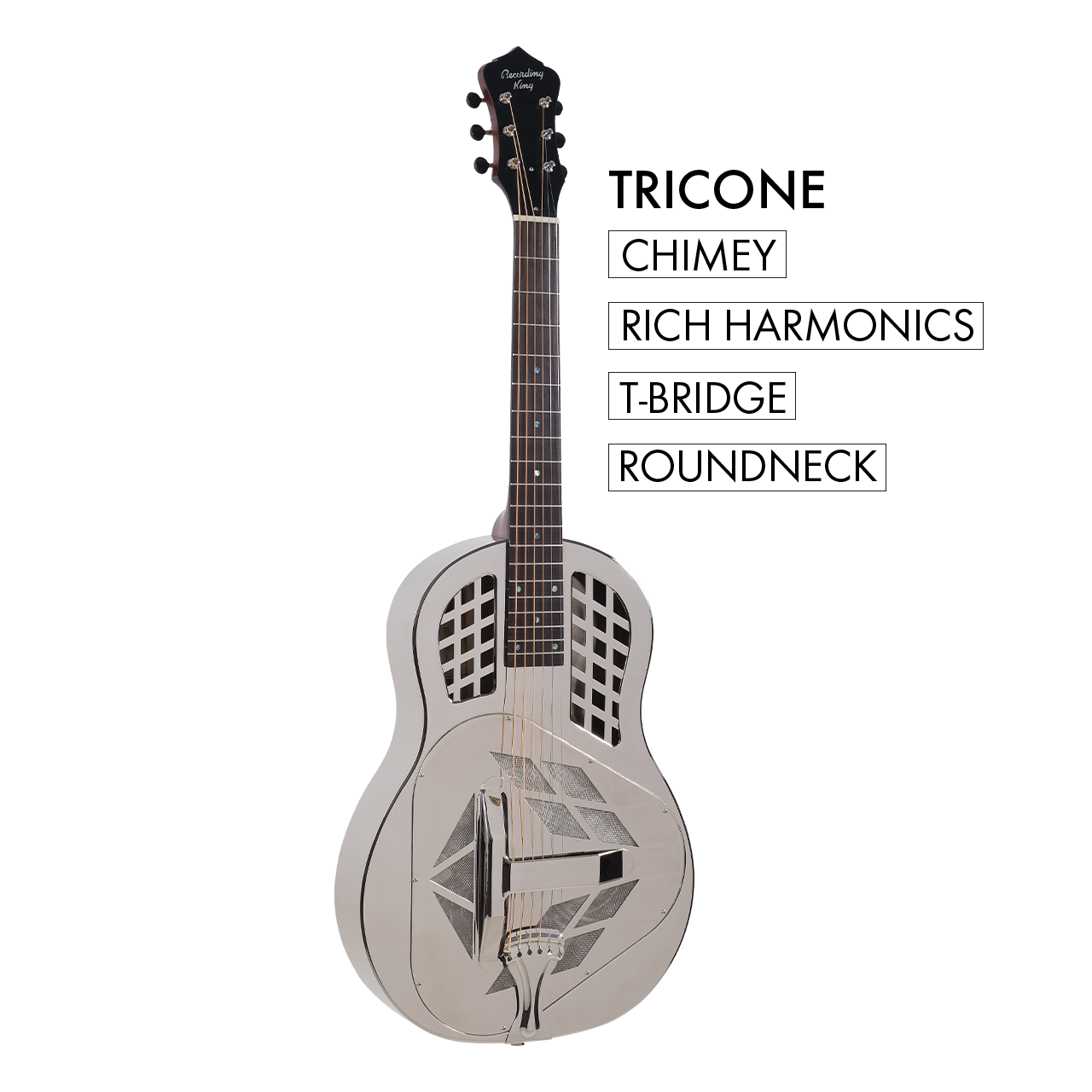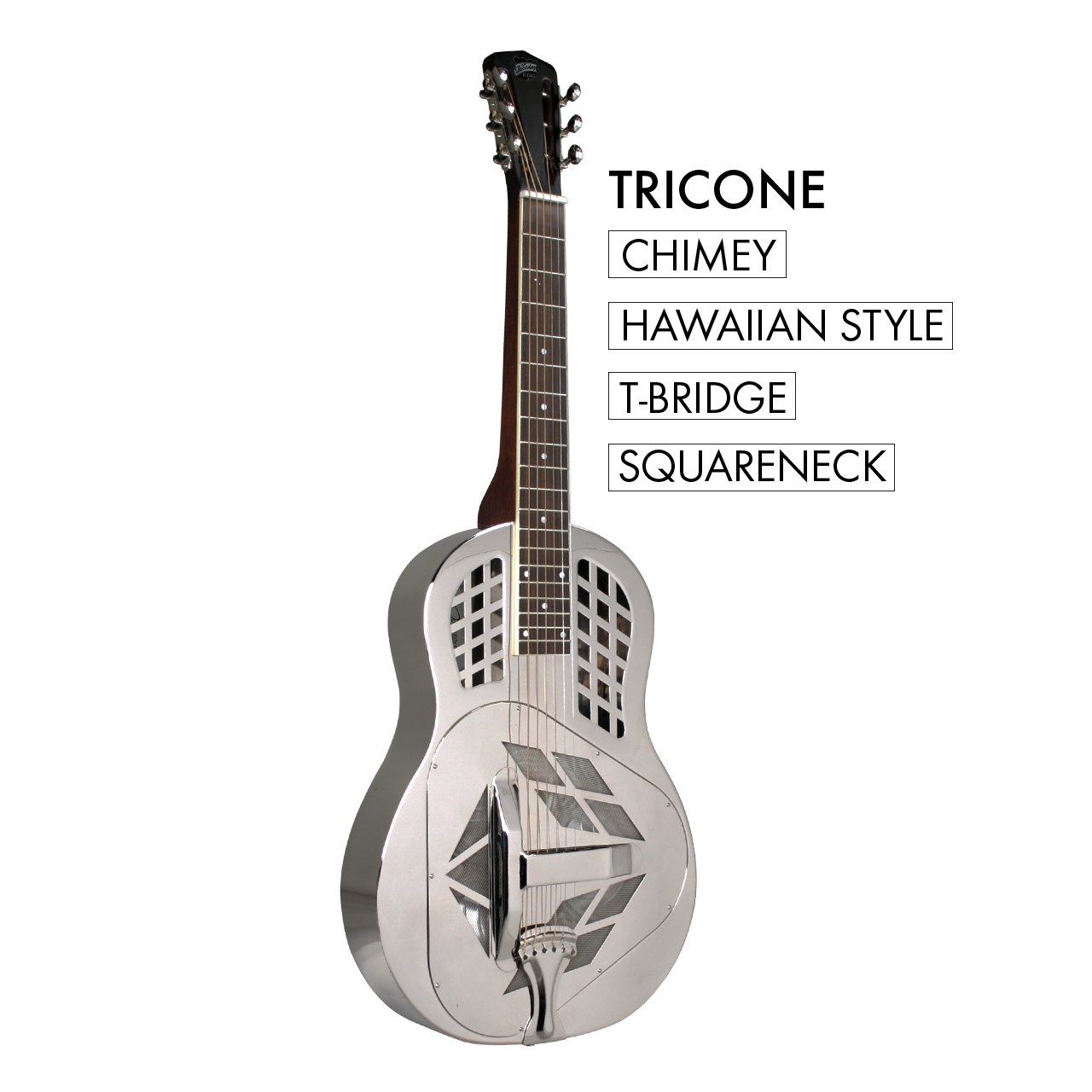Which Resonator is Right for You?
There are a lot of things to consider when shopping for a resonator guitar. We’ve created this guide to help you find your sound and style!
Terminology
Square Neck: Square neck instruments are played lying flat in one’s lap, typically in open tuning, and with a steel bar in the left hand*. Typically used for Hawaiian & Country.
Round Neck: Round neck instruments are designed to be played like a conventional guitar in standard or open tuning. Many players use a combo teqhnique with both a slide and fretting in the left hand*. Typically used for Country, Americana, and Blues.
Wood Body: Wood body resonators are at the warmer side of the tonal spectrum, and are comparatively lighter than their metal bodied brethren.
Metal Body: Metal body resonators are on the brighter side of the tonal spectrum, and are louder than their wood bodied brethren.
Tricone: Tricone instruments employ three cones connected by a t-bar. Has a complex tone, the existence of more overtones, and generally greater sustain.
Spider Bridge: Paired with a single “W” shaped concave cone, a spider bridge equipped resonator is known for its long, sweet sustain favored by Bluegrass players.
Biscuit Bridge: Paired with a single convex cone, a biscuit bridge equipped resonator is known for its woody “bark” favored by Blues, Americana, and Country Blues players.
Cone: The cone is the “speaker” of a resonator guitar, replacing the function of the soundboard on a traditional flat top instrument, giving the resonator its signature tone.
Open Pedestal Soundwell: An open pedestal soundwell employs posts to support the cone’s edge. The result is an open tone that is thick in the mid-range. Instruments equipped with this soundwell are nicely suited for Blues and Americana.
Enclosed Soundwell: An enclosed soundwell is typically used in spider bridge equipped instruments and are favored among bluegrass players. Expect a crisp attack and minimal overtones.
* reverse when playing left-handed.

